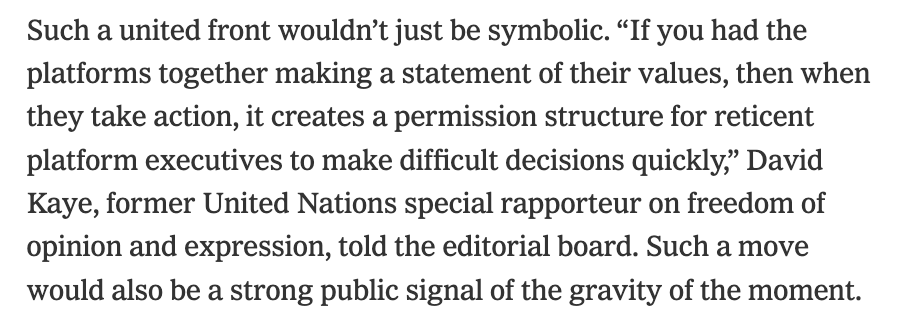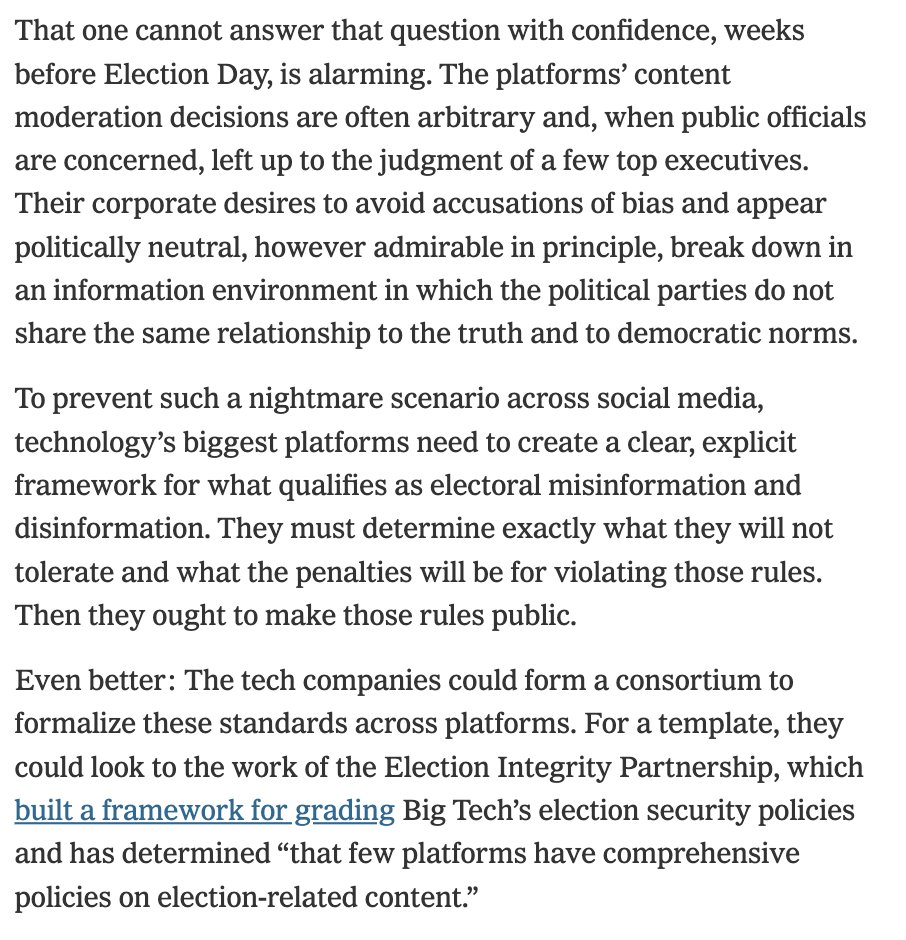The @nytimes editorial board has called for social media platforms to come together with clear standards to address election disinformation. Good for them! nytimes.com/2020/09/27/opi…
I made this point last week
https://twitter.com/davidakaye/status/1308614849912385536?s=20
This shouldn’t be hard. @alexstamos @2020Partnership have shown that platforms have been building their policies/practices, but they're hard to identify & so much remains opaque and subject to political pressure.
https://twitter.com/alexstamos/status/1309930447296634883?s=20
A joint platform commitment could have practical and signaling value. Practically, a statement of shared rules – even if, as applied, address the particularities of each platform – could make it easier for the platforms to act. 

Transparent action could give the public a basis for understanding what’s normally opaque platform decisionmaking. 

Such an approach should also be taken up by trad'l media outlets, which will be under competitive pressure on 11/3. Check out the comprehensive recommendations here, in this must-read report led by @rickhasen law.uci.edu/faculty/full-t… especially this 

• • •
Missing some Tweet in this thread? You can try to
force a refresh








